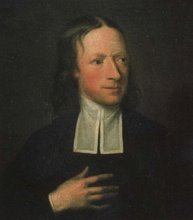SAVANNAH, July 23, 1736.
By what I have seen during my short stay here, I am convinced that I have long been under a great mistake in thinking no circumstances could make it the duty of a Chris tian priest to do anything else but preach the gospel. On the contrary, I am now satisfied that there is a possible case wherein a part of his time ought to be employed in what less directly conduces to the glory of God and peace and goodwill among men. And such a case, I believe, is that which now occurs; there being several things which cannot so effectually be done without me; and which, though not directly belonging to my ministry, yet are by consequence of the highest concern to the success of it. It is from this conviction that I have taken some pains to inquire into the great controversy now subsisting between Carolina and Georgia, and in examining and weighing the letters wrote and the arguments urged on both sides of the question. And I cannot but think that' the whole affair might be clearly stated in few words. A Charter was passed a few years since, establishing the bounds of this province, and empowering the Trustees therein named to pre pare laws which, when ratified by the King in Council, should be of force within those bounds. The Trustees have prepared a law, which has been so ratified, for the regulation of the Indian trade, requiring that none should trade with the Indians who are within this province till he is licensed as therein specified. Notwithstanding this law, the governing part of Carolina have asserted, both in conversation, in writing, and in the public newspapers, that it is lawful for any one not so licensed to trade with the Creek, Cherokee, or Chicasaw Indians. [See next letter. The Journal (i. 248-50) shows that some Chicasaw Indians were in Savannah for several days, and Wesley had a conference with them.] They have passed an ordinance, not only assert ing the same, but enacting that men and money shall be raised to support such traders; and, in fact, they have themselves licensed and sent up such traders, both to the Creek and Chicasaw Indians.
This is the plain matter of fact. Now, as to matter of right, when twenty more reams of paper have been spent upon it, I cannot but think it must come to this short issue at last: (1) Are the Creeks, Cherokees, and Chicasaws within the bounds of Georgia or no? (2) Is an Act of the King in Council, in pursuance of an Act of Parliament, of any force within these bounds or not? That all other inquiries are absolutely foreign to the question a very little consideration will show. As to the former of these, the Georgian Charter, compared with any map of these parts which I have ever seen, deter mines it. The latter I never heard made a question of but in the neighborhood of Carolina.
Mr. Johnson's brother has been with us some days. [Mr. Johnson is referred to in Journal, i. 250d. His brother had been on board the Simmonds, and com plained that he was inconvenienced by the public prayers in the great cabin. Fortunately he left the ship at Cowes (ibid. i. 114, 124). The father had been Governor of South Carolina.] I have been twice in company with him at Mr. Oglethorpe's; and I hope there are in Carolina, though the present proceeding would almost make one doubt it, many such gentlemen as he seems to be--men of good nature, good manners, and under standing. I hope God will repay you sevenfold for the kind ness you have shown to my poor mother, and in her to, sir, Your most obliged, most obedient servant.




